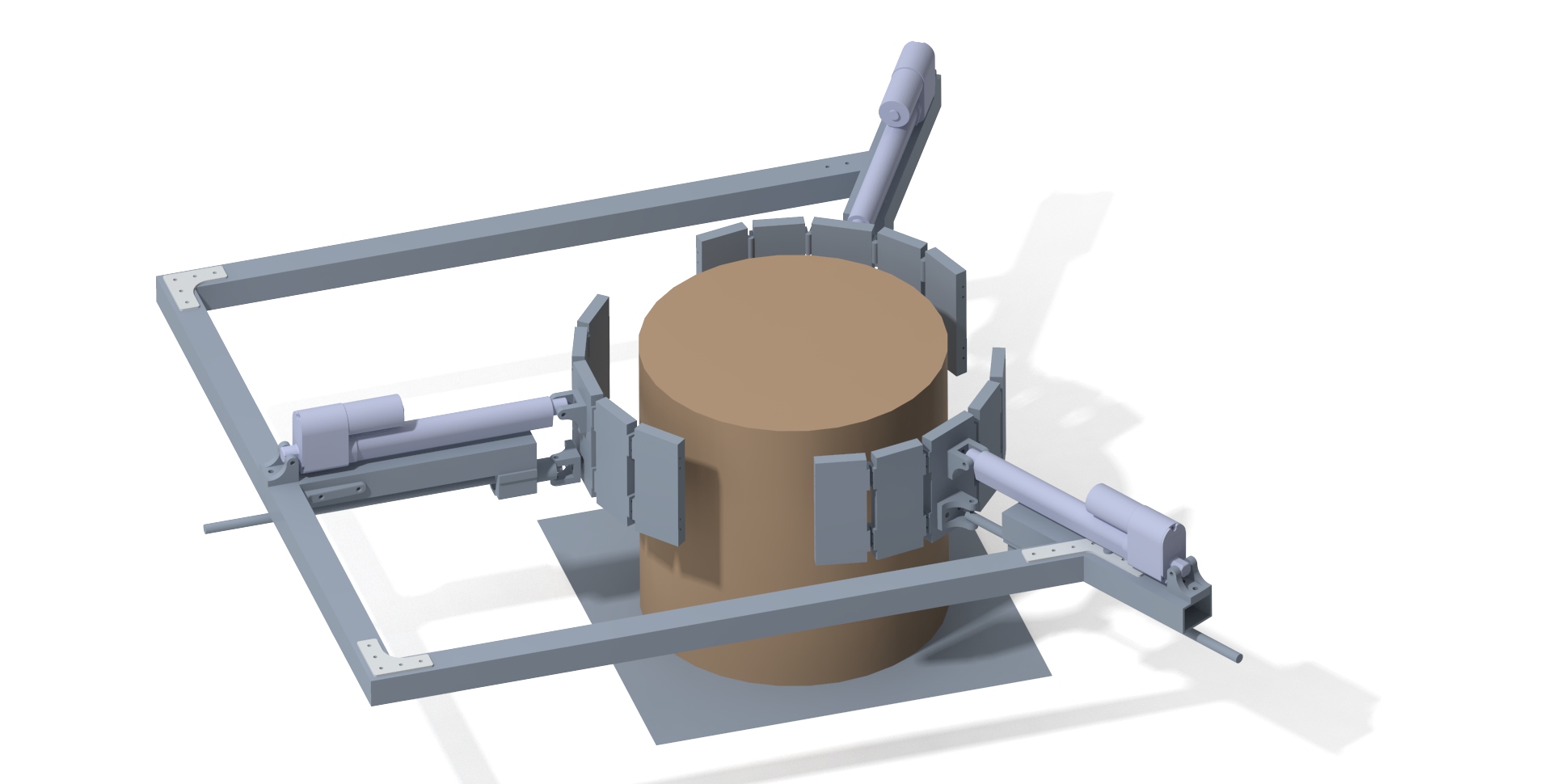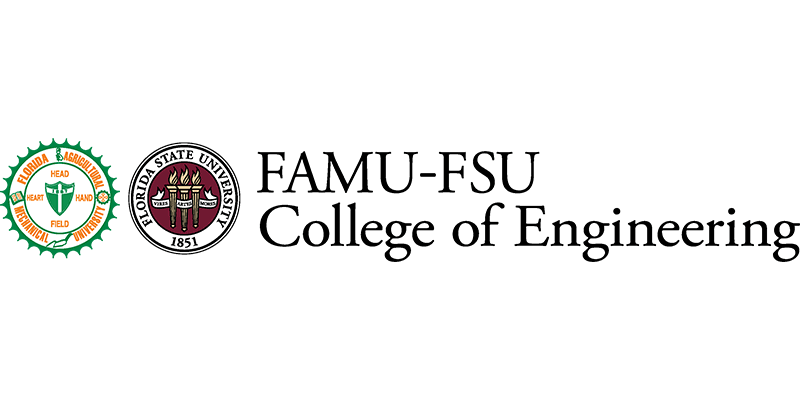Team 502’s mission is to provide a solution to
handling ceramic filters without introducing damage; our design will achieve
this by preventing visible damage at the location where the handler contacts
the filter’s outer walls.
Corning produces brittle, cylindrical ceramic filters
for vehicles with internal combustion engines to filter exhaust air. Throughout
production, these ceramic filters are at times subjected to damage when moved
from one manufacturing stage to another. Damage to these filters typically
occurs from crushing the filter’s skin, making the filters unusable. These
ceramic filters have varying sizes, with diameters ranging from 7.5 to 15
inches and weighing from 4 to 40 pounds.
Our
handler design has three fingers that approach the filter’s surface in three
separate places around the filter’s circumference. The design is adjustable
depending on the size of the filter it is handling. There is compliant padding
attached to the design that contacts the filter’s surface to lessen the contact
forces applied on the filter. Force sensors indicate when the handler should
stop applying pressure, allowing for part movement. This procedure is quick and
consistent with the use of motors and a computer, making the design usable in a
lean manufacturing system. The linear motion of the padded three-finger design
also allows the handler to pick and place various sizes of these ceramic
filters with a controlled motion.
Corning has provided our team with part samples. Our
team will show the effectiveness of the design by evaluating the handler
performance with these sample filters. A successful test would result in the
handler not causing damage to the ceramic parts after grasping and moving the
parts. The handler design will demonstrate success by regulating the forces
applied by the handler, adding cushioning to the interface, and increasing the
contact area. Thus, reducing the damage introduced to the cylindrical ceramic
parts by handling.


Final Design
Demonstration Video
https://www.youtube.com/shorts/47-8ZaGDmPg

Makada is a current senior majoring in Industrial Engineering at FAMU-FSU College of Engineering. Upon graduation, Makada will be relocating to Chesapeake, Virginia where she will start her career as a Quality Control Engineer with Flowserve. Makada will continue as a mentor and tutor, expanding on her current role as a teacher for the nonprofit organization STEM4Girls.

Erich is graduating in Spring 2022 with a degree in Mechanical Engineering with specialization
in Mechanics and Materials. After graduation, Erich is pursuing a career in MEP engineering with
Rameriz and Azadian Analysis and Design in New York City. He dreams of making eco-friendly
buildings for the future generation.

Charles is graduating in Spring 2022 with a Mechanical Engineering degree with a focus in dynamic
systems. After graduating, Charles is moving to Corning, NY to pursue a career in process engineering
at Corning Inc.

Amelia is a senior studying Mechanical Engineering at the FAMU-FSU College of Engineering. She is specializing in the mechanics of materials. After graduating, Amelia is moving to Blacksburg, VA to start her career as a process engineer for Corning Inc.








created with
Offline Website Builder Software .